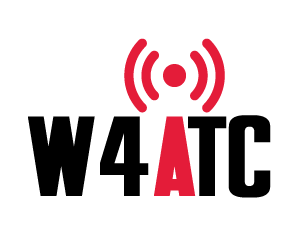W4ATC prides itself on being open to members of any background and any major. No license or experience with radios or electronics is necessary to become a member of the club. Our only requirements are that you’re a current or former faculty member or student at NC State University, although anyone is welcome to join our Discord– this is mainly how we coordinate with RARS and other local organizations.
See our ‘Links’ page to join our Discord or send us an email. You may also find us on NC State’s GetInvolved website, feel free to contact us there as well.
Benefits of Joining Include:
- 24/7 access to Engineering Building II and our “shack” (colloquialism for radio lab)
- Ability to make radio contacts around the world with our state-of-the-art equipment
- Connect with students and faculty with similar interests
- Gain (pun-intended) some hands-on experience with RF technology
- Get help with acquiring your own license
- Attend local club functions including RARS Field Day and the RARSfest swap meet
- Get valuable advice from our experienced members on how to set up your own amateur radio station at home
FAQ:
- Q: Are you affiliated with WKNC 88.1?
- A: While we are both radio stations associated with NC State University, no we are not affiliated with WKNC 88.1 FM. WKNC is a commercial FM broadcast station, and W4ATC is strictly an amateur radio station. Amateur radio stations are for two-way communications, whereas a broadcast station communicates strictly in one direction.
- Q: Can graduate students join?
- A: Absolutely! Any current or former student, whether a graduate or undergraduate is very welcome to join W4ATC.
- Q: Do I need a license to join?
- A: No, you do not! We are open to open to any and all NCSU students interested in radio technology regardless of major or license status. Many of our members are unlicensed, but are still involved in club activities, including serving on the board.
- Q: Do I need a license to use W4ATC’s equipment?
- A: No, you do not need a license to use W4ATC’s equipment. However, a licensed club member must be present and acting as “control operator” of the station whenever a member is using station equipment to transmit on any frequency. The unlicensed individual may use the club callsign, W4ATC, or the callsign of the control operator. For more in-depth legal stuff regarding control operators etc. see FCC CFR Part 97.
- Q: Is it difficult to get licensed?
- A: For many people, not particularly. Obtaining a license is certainly within reach of just about anyone. A bit of background knowledge of basic electronics (to the depth discussed in high-school physics) is helpful, but not a necessity. To get licensed you will need to do the following:
- Obtain an FRN (FCC Registration Number) from the FCC (a straightforward process- we can help with this)
- Study for and pass the Technician Class license examination (we have a great collection of study resources to recommend)
- Pay the $35 licensing fee to the FCC (student members may be reimbursed using club funds)
- Wait a few days, and your callsign will be assigned through the FCC’s Universal Licensing System (ULS)
- Q: What can I do with each license class?
- A: As of 2024, the FCC issues 3 classes of Amateur Radio licenses. These are the Technician Class, General Class, and Amateur Extra Class. Everyone must start off by getting their Technician license.
- Technicians may use any of the club’s VHF/UHF technology, including talking through low-earth orbit satellites and moonbounce. Technicians are also entitled to use our HF radios on portions of the 10 meter band, and may use morse code on some lower HF bands, allowing communication over thousands of miles.
- General licensees have all the same privileges as Technicians, but may also use all HF bands for voice, morse code, and digital modes such as slow-scan television and packet radio
- Amateur Extra licensees may use any part of any amateur radio band. While only a small portion of most bands is off-limits to Generals, these portions are where many highly-sought-after exotic DX stations tend to hang out.
